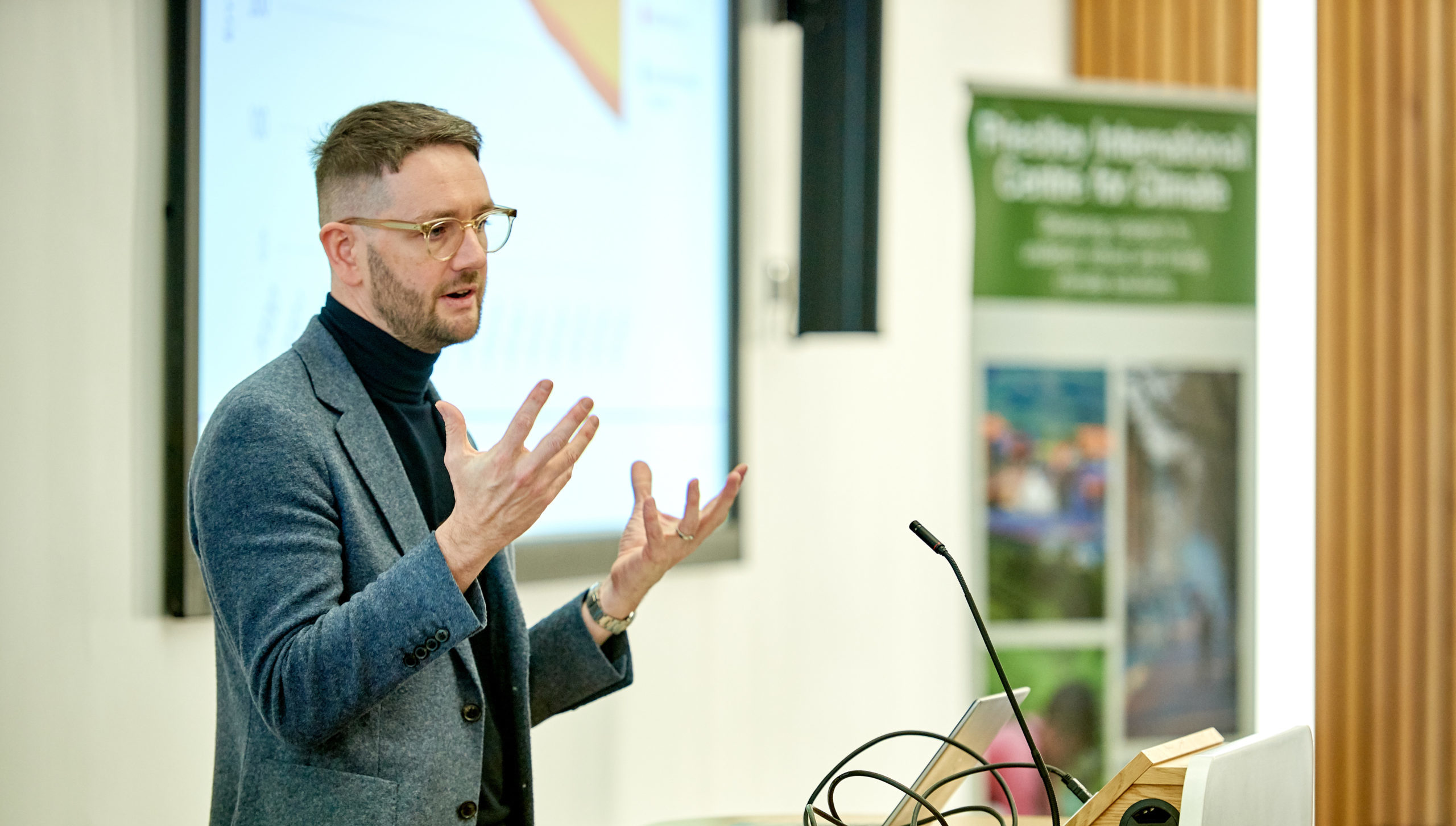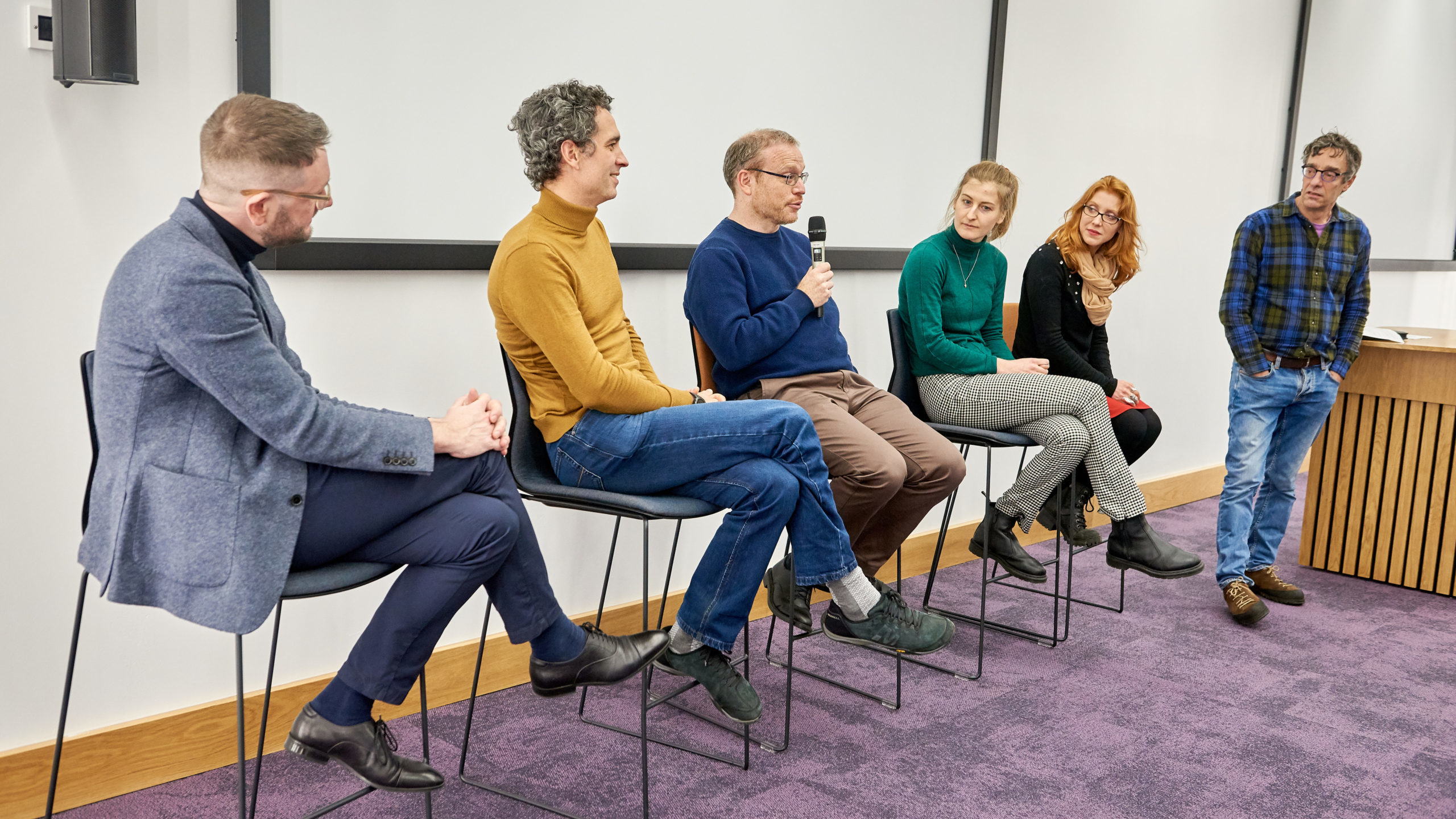Research and evidence priorities for the UK Climate Change Committee

A blog by postgraduate researcher Sam Birch
On what turned out to be a busy day for UK climate and energy policy, we were fortunate enough to be joined by the Chief Executive of the Climate Change Committee (CCC), Chris Stark and some of his team for a presentation and Q&A session at the University of Leeds. There was a strong turnout of climate-based academics from Leeds keen to find out what 2023 holds for the CCC and how to engage with the Committee to help our progression towards net-zero. As Chris stepped up to the lectern, he shared that he had just taken a call from Downing Street on the formation of the new Department of Energy Security and Net-Zero – breaking news for those in the audience.
The UK Climate Change Committee was formed in 2008 as part of the Climate Change Act. The organisation functions as an independent non-departmental public body advising the UK government and devolved administrations on climate change progression, mitigation and preparation. The CCC produce vital resources to guide UK policy makers on climate related decisions, including the UK’s carbon budgets and the net-zero report that that informed pioneering legislation 2019. In this video, Chris Stark explains more about the CCC.
A focus on adaptation
As climate impacts are increasingly experienced, and as climate action continues to build across society, the CCC are shifting their attention somewhat. This includes focusing on the importance of communicating the co-benefits of making net-zero transitions and gaining a fuller understanding of climate change impacts along with the societal implications of our mitigation efforts.
Then 7th carbon budget is due in 2025. This will differ compared to previous reports, with the main focus being on adaptation. Chris was frank that at this stage we are not going to reduce climate risks further and when we do reach net-zero (hopefully) these risks will most probably be higher than what we are currently experiencing. As such, evidence for adaptation will become the priority within the Committee, describing pathways towards net-zero in a manner which assesses the impacts on our communities, environment and economy, while ensuring a just and effective transition. The CCC is hoping to develop and adopt new methods of research to look across realistic outcomes for the UK along with associated adaptation measures. These include further use of qualitative analysis, which is currently not having enough impact within the policy space, and building “systems that matter” for the development of adaptation policy.

Our role as researchers
Academics are keen to help the CCC, but it is difficult to know what the Committee is after and how researchers can engage with them. The panel shared insights on how this can be done effectively. Here are some top tips:
- Ensure that your research is published and assessable.
- Tell the CCC about your research and how it fits into their topics of interest.
- Present your work against the current methods of the CCC and show how it could benefit them.
- Be critical of the CCC methods. Explain how implementing your research could produce more effective outcomes.
- Be conscious that their time is finite. Be clear and to the point.
Panelists explained that with the pivot to more adaptation-related output, there are a lot of changes happening within the department. With this, and further changes in the structure of the UK government, comes a spectrum of opportunities for climate researchers to present their work for real impact. As much as climate change is a risk to the world that we know, it can also be an opportunity to bring meaningful and positive change to our society.
Chris Stark features in our new instalment of Ask A Climate Researcher. Watch the remaining three videos on our YouTube channel:
